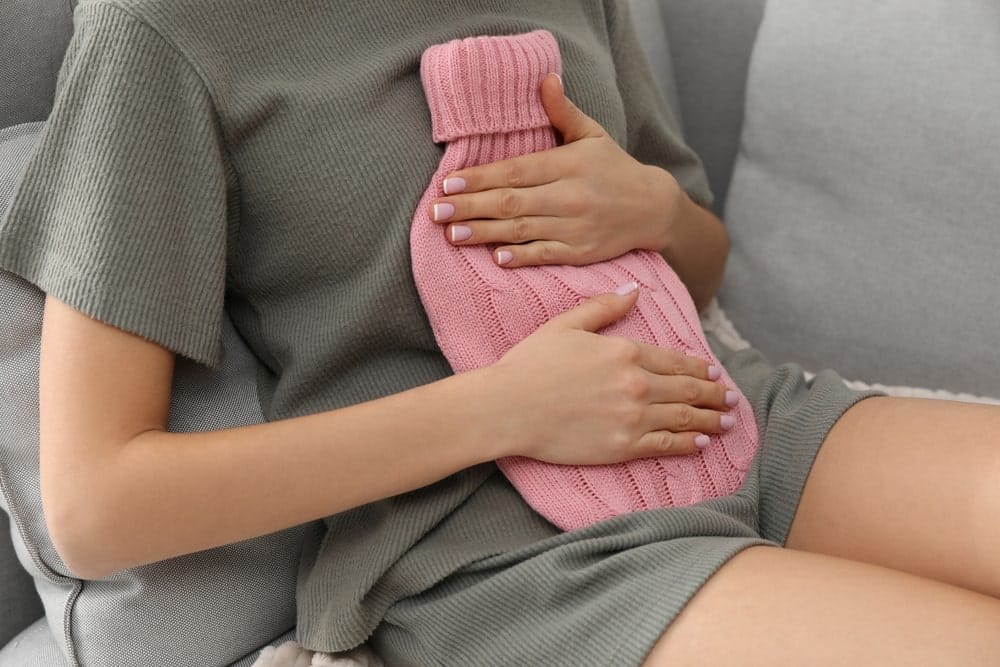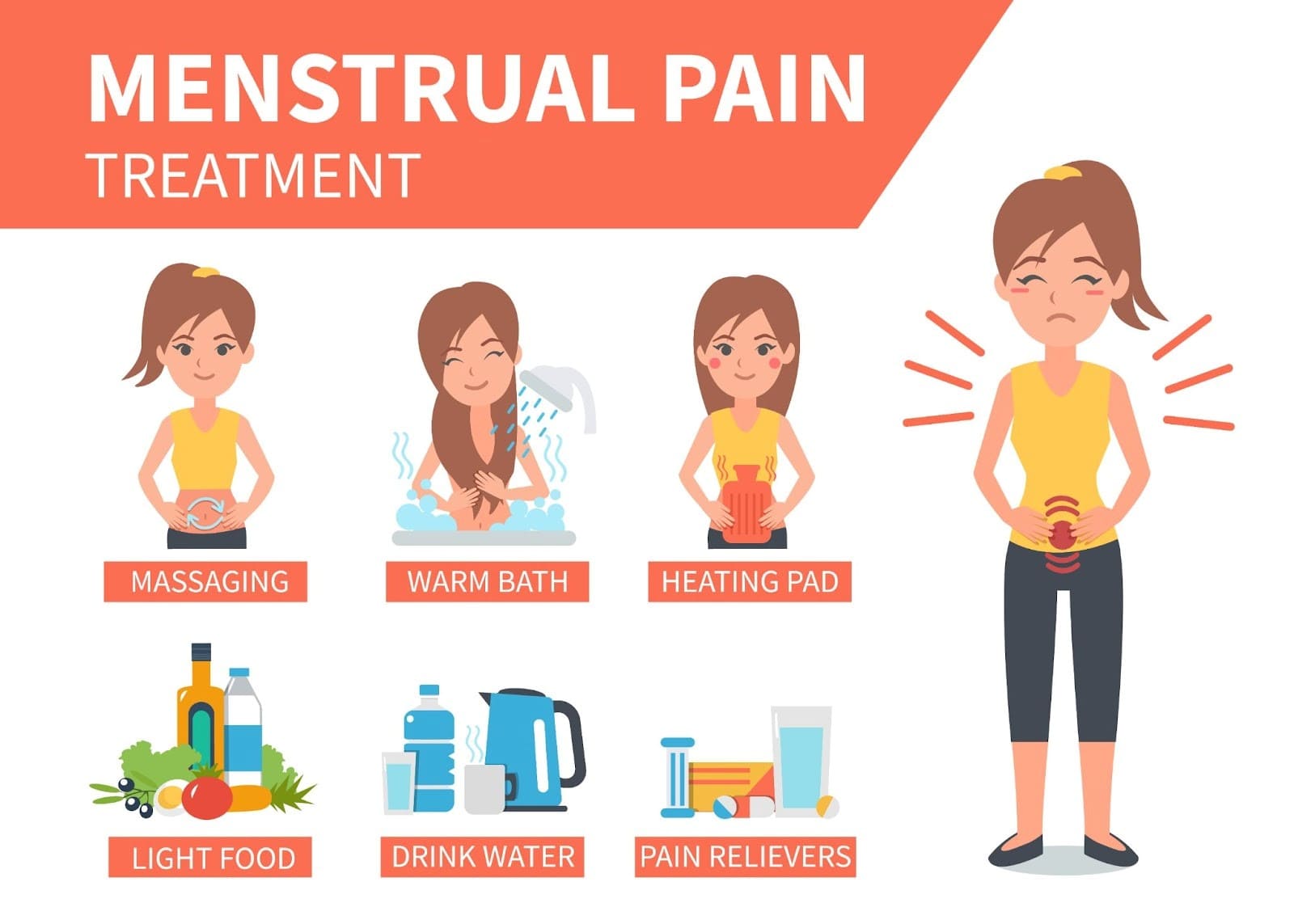
It’s approaching the time of the month again – and you are starting to feel the familiar yet dreaded menstrual cramps in your lower abdomen. You look around at the women around you and wonder how they deal with it – perhaps there is something not quite right with your body?
Understanding when to see a gynaecologist for your menstrual cramps is important. It can sometimes be daunting due to misconceptions that you may have heard from your peers or from the older generation – that menstrual cramps are a normal part of a woman’s life, that one should just “deal with it and move on”; yet sometimes it can be a harbinger of something more serious.
Menstrual cramps are usually experienced as lower abdominal aches and pains which come by before or during one’s periods. This pain can extend to the lower back, hips and inner thighs - every woman experiences menstrual cramps differently; in fact, menstrual cramps can vary from cycle to cycle in the same woman.
Menstrual cramps occur because of uterine (womb) contractions during your period. Bad or severe menstrual cramps can last throughout the period or linger on even when the period is over (morphing into chronic pelvic pain). Some women may also experience associated symptoms such as heavy periods, upset stomach, vomiting or loose stools.
There can be many conditions that cause abnormal period pains. These include:
This is a condition where tissue from the uterine (womb) lining is found outside the womb; common areas that are affected include the ovaries, fallopian tubes and intestines. These tissues continue to be affected by cyclical hormonal changes and bleed during periods, resulting in significant period pains, inflammation and scarring. Scarring of the pelvic organs distorts the pelvic anatomy and can eventually lead to female infertility and/or an increased risk of ectopic pregnancy.
Similar to endometriosis, in this condition the tissue from the uterine (womb) lining grows and invades into the muscle layer of the uterus. The tissue likewise continues to be influenced by cyclical hormonal changes and bleeds during periods. Women affected by adenomyosis typically have a globular enlarged uterus and experience painful, heavy periods.
Uterine fibroids are non-cancerous growths that arise from the muscle layer of the uterus (womb). They are a common finding in women of the reproductive age group, and can occur singularly or in multiples. Depending on their location in the uterus, some fibroids (e.g. submucous, whereby the fibroid occups the endometrial aka womb cavity) can cause periods to be heavier and more crampy.
Read: What is the best treatment for uterine fibroids?
In PID, there is an ascending infection (typically sexually transmitted) from the vagina up to a woman’s reproductive organs, which causes resultant inflammation and pain of the uterus, fallopian tubes as well as ovaries. Other than pain, other symptoms of PID can include abnormal or foul-smelling vaginal discharge, fever, and painful sexual intercourse.
It can be normal to experience menstrual cramps as long as they are transient and do not affect your ability in carrying on with your normal life. Typically most women feel some cramps just before and during the first few days of their periods when bleeding is “full flow”. If you experience menstrual cramps that:
You should schedule an appointment with your gynaecologist for a check-up as it may be a sign of something wrong.

Just as it is for life, there can be good and bad months when it comes to period pains. If you are experiencing the above-mentioned red flag symptoms, do see your gynaecologist earlier.
If your period pains are manageable, it may be worthwhile observing your next couple of cycles to check for persistence before making your way into your gynaecologist’s office.
Menstrual cramps that are physiological (i.e. not caused by abnormal gynaecological conditions) usually get better with age and often women may find that they lessen after childbirth - the reason why this may happen is yet unknown.
However, menstrual cramps that are caused by gynaecological conditions such as those highlighted above e.g. endometriosis, adenomyosis etc tend to get worse as time goes on - particularly if they are not diagnosed on a timely basis.
Managing menstrual cramps at home is possible if they are mild and transient - often some gentle exercise, dietary changes, over-the-counter analgesia and a warm pack can do wonders in relieving period cramps.
If those are not working though, see your gynecologist who will then need to take a detailed medical history and perform a physical examination - often this involves a vaginal speculum and pelvic examination (for women who have been sexually active before) to look and palpate for any abnormalities.
This is typically followed by a pelvic ultrasound (on an empty bladder), which is best performed transvaginally, to visualize the uterus, uterine lining, and bilateral ovaries to check for signs of the fore-mentioned conditions. In women who are virgins, an abdominal examination and a trans-abdominal pelvic ultrasound (performed with a full bladder) are utilized to check for the same.
The most common question I get from patients are - do I need to do any special grooming “down below” before seeing the gynaecologist? The answer to that is no - most of the time it never registers in your gynaecologist’s mind whether you are shaven or not before, and we wouldn’t know if you had sex the night before either - we are just focused on the examination at hand! So don’t put off your gynaecologist visit just before you are worried about your perineal grooming.